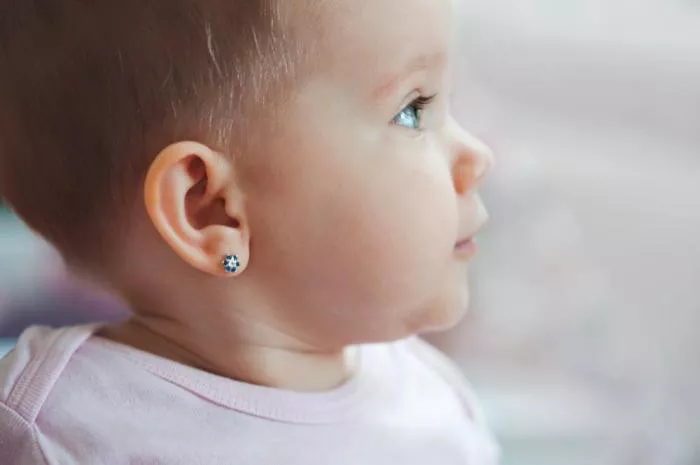Hearing is one of the most important senses. It plays a crucial role in how we interact with the world. Understanding when newborns can hear helps parents support their child’s development. This article will explore when babies start to hear, how their hearing develops, and the importance of sound in their early lives.
The Development of Hearing Before Birth
Hearing begins in the womb. By the time a fetus reaches 25 weeks of gestation, it can start to hear sounds. The environment inside the womb is filled with sounds. These include the mother’s heartbeat, digestion, and external noises. Fetuses are more responsive to low-frequency sounds, such as voices and music.
Research shows that newborns can recognize their mother’s voice. They learn to identify it while still in the womb. This connection helps them bond with their mothers after birth.
After birth, babies can hear sounds from their environment. However, their hearing is not fully developed. Newborns can hear but may not understand or react to sounds the same way older children and adults do. Their ability to hear will improve over time.
Hearing Abilities of Newborns
Newborns have a limited hearing range. They can hear sounds from 20 Hz to 20,000 Hz. However, their hearing is most sensitive to sounds in the range of human speech, which is about 500 Hz to 4,000 Hz.
When babies are born, they may respond to sounds in various ways. They might startle at loud noises or turn their heads toward softer sounds.
It’s important to note that babies may not respond to every sound. Some sounds, like white noise or soft music, may not elicit a noticeable reaction. This doesn’t mean they can’t hear; it just means they are still learning to process sounds.
The Importance of Sound Exposure
Sound plays a vital role in a newborn’s development. Exposure to sounds helps build neural connections in the brain. These connections are essential for language development and communication skills later in life.
Parents can support their baby’s hearing development by talking and singing to them. Even if a baby cannot respond, they benefit from hearing their parents’ voices. Research shows that the more parents talk to their newborns, the better their language skills will be as they grow.
Music is also beneficial for newborns. Playing soft, calming music can soothe babies and create a positive environment. Studies suggest that music can enhance a baby’s cognitive development and emotional well-being.
Signs of Hearing Issues
It’s important for parents to monitor their baby’s hearing development. There are certain signs that may indicate a hearing problem.
Newborns should startle at loud sounds or turn their heads toward familiar voices by the time they are 3 months old. By 6 months, they should respond to their name or other sounds.
If a baby does not react to loud noises, does not turn toward sounds, or seems to have trouble understanding speech, it may be time to consult a doctor. Early detection of hearing issues is crucial for effective intervention.
Hearing Tests for Newborns
Most hospitals perform hearing tests on newborns before they go home. These tests are usually quick and painless. The two common types of tests are the Otoacoustic Emissions (OAE) test and the Auditory Brainstem Response (ABR) test.
The OAE test measures sound waves produced in the inner ear. If the inner ear is functioning well, it will produce sounds that can be detected by the test.
The ABR test measures how the auditory nerve and brain respond to sound. Electrodes placed on the baby’s head record brain activity in response to sounds.
If a newborn does not pass these tests, follow-up testing is necessary. Early intervention can greatly improve a child’s development.
The Role of Pediatricians
Pediatricians play a key role in monitoring a child’s hearing development. They assess hearing during routine check-ups and can refer families for further testing if needed.
Parents should keep track of their child’s milestones related to hearing and communication. Pediatricians can provide guidance on what to expect as a child grows.
Supporting Hearing Development at Home
Parents can create a sound-rich environment to support their baby’s hearing development. Here are some tips:
Talk to Your Baby: Engage your newborn with your voice. Describe what you are doing or sing simple songs.
Read Aloud: Reading to your baby, even from an early age, helps them become familiar with the sounds of language.
Play Music: Choose soothing music for your baby. Classical music, lullabies, or gentle tunes can create a calm atmosphere.
Limit Loud Noises: While babies can adapt to some noise, it’s important to keep loud sounds to a minimum. Sudden loud noises can startle them.
Encourage Social Interaction: Allow your baby to hear various voices. Family members, friends, and caregivers should interact with the baby.
Use Sound Toys: Toys that make gentle sounds can stimulate a baby’s hearing. Rattles, soft music boxes, or crinkly toys are good options.
Watch for Reactions: Pay attention to how your baby reacts to sounds. Celebrate their responses to noises, as this encourages further engagement.
See also: How Much Can Newborns Hear
Conclusion
Hearing is a crucial sense for newborns. Babies can hear sounds before birth, but their hearing develops significantly during the first few months of life. Parents play a vital role in supporting their child’s auditory development. By engaging in conversation, reading aloud, and providing a sound-rich environment, parents can foster their baby’s hearing skills.
Monitoring for any signs of hearing issues is also essential. Early detection and intervention can lead to better outcomes for children with hearing difficulties. By understanding when and how newborns hear, parents can take meaningful steps to support their child’s development.
In the end, nurturing a child’s hearing is an important part of parenting. It lays the foundation for language, communication, and social interaction.
Related topics:


